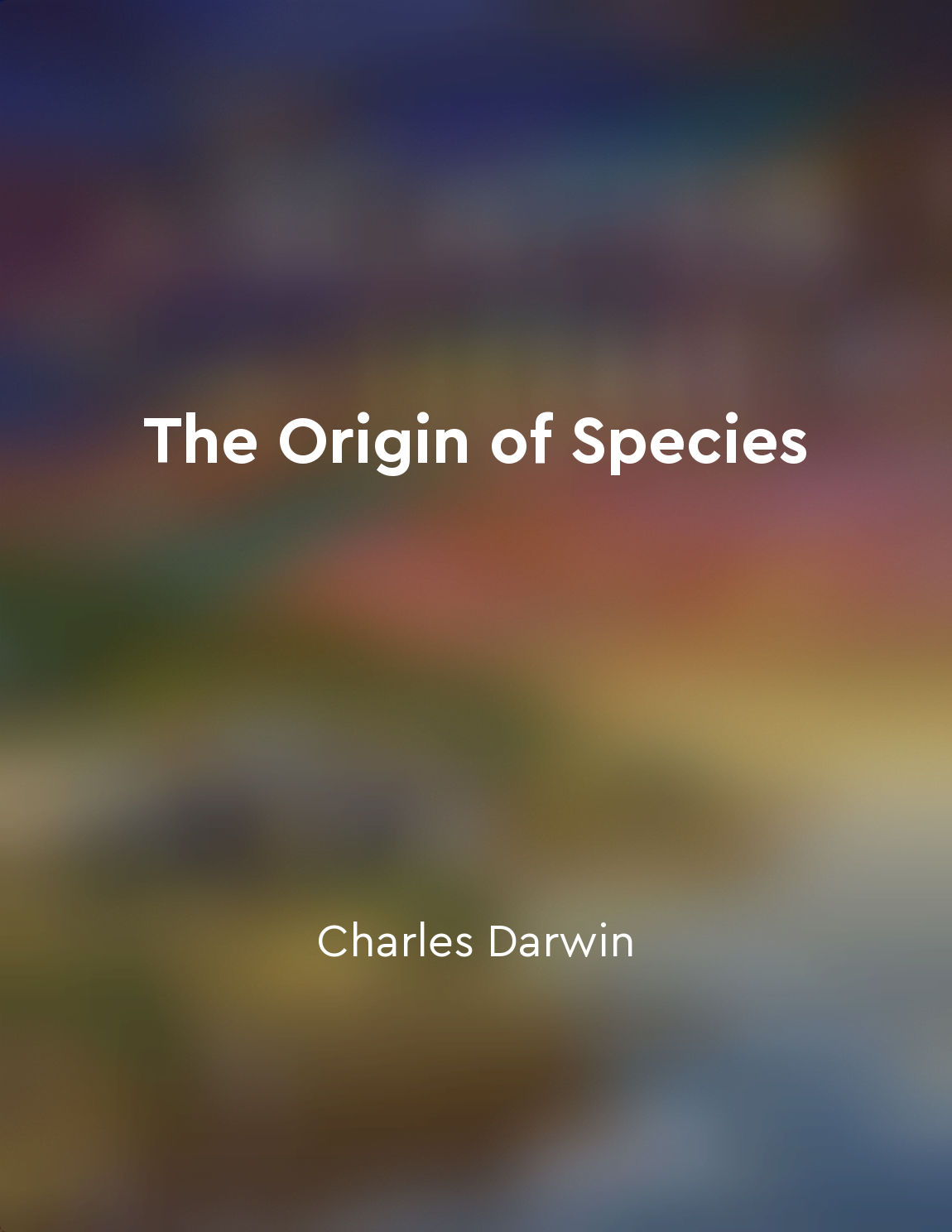Adaptations increase fitness from "summary" of The Origin of Species (Deluxe Library Binding) (Annotated) by Charles Darwin
Adaptations are beneficial traits that increase an organism's chances of survival and reproduction in a particular environment. These adaptations are the result of natural selection, where individuals with advantageous traits are more likely to pass on their genes to the next generation. Over time, these advantageous traits become more common in the population, leading to an increase in fitness. Fitness, in the context of evolution, refers to an organism's ability to survive and reproduce in its environment. Adaptations that increase an organism's fitness can take many forms, from physical characteristics like camouflage or sharp claws to behavioral traits like hunting strategies or mating displays. These adaptations allow organisms to better compete for resources, avoid predators, and attract mates, ultimately leading to greater reproductive success. The process of natural selection ensures that only the fittest individuals survive and reproduce, passing on their advantageous traits to their offspring. This continuous cycle of adaptation and selection drives the evolution of species over time, leading to the diversity of life forms we see today. Organisms that are well-adapted to their environment are more likely to thrive and pass on their genes, while those that are poorly adapted are less likely to survive and reproduce. Adaptations can be the result of random mutations that provide a survival advantage, or they can be the result of gradual changes in response to environmental pressures. In either case, adaptations increase an organism's fitness by improving its ability to survive and reproduce in its environment. This process of adaptation and natural selection is key to understanding the diversity and complexity of life on Earth. By increasing fitness through beneficial adaptations, organisms are able to better adapt to changing environmental conditions and compete more effectively for resources. This constant struggle for survival and reproduction drives the process of evolution, shaping the characteristics of species over time. Adaptations that increase fitness are therefore crucial to the long-term success of a species in its environment.Similar Posts
Parmenides argued for a single unchanging reality
Parmenides was one of the earliest Greek philosophers, and he put forth a bold idea that challenged the prevailing beliefs of h...

Cell structure and function
The cell is the basic structural and functional unit of all living organisms. It is the smallest unit that can carry out all th...
Critical thinking skills are honed through analysis and evaluation
Critical thinking is a vital skill that is developed through the process of analysis and evaluation. When individuals engage in...

Mutations can lead to variations in traits
Mutations, or changes in the DNA sequence, are a fundamental source of genetic variability in organisms. These changes can occu...
Parasitism, mutualism, and commensalism are types of symbiotic relationships
In nature, organisms often interact with each other in various ways. These interactions can be classified into different types ...

The Bible cannot be taken as a literal truth
The Bible is a revered religious text for billions of people around the world, but it cannot be taken as a literal truth. This ...
Life is influenced by historical processes
Life unfolds within the constraints imposed by its own historical processes. These historical processes shape both the possibil...
Life exhibits patterns and regularities
Life is characterized by a remarkable array of patterns and regularities that pervade all aspects of living systems. These patt...

Natural selection explains the complexity of living organisms
Natural selection is the process by which individuals that are best adapted to their environment are more likely to survive and...
Kin selection promotes gene propagation
Kin selection is a concept that explains how certain behaviors that may seem selfless actually serve to promote the propagation...

